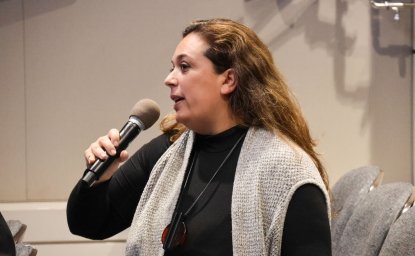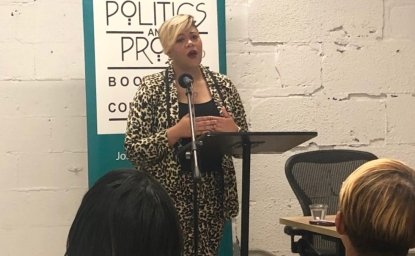
A blog of the Wilson Center
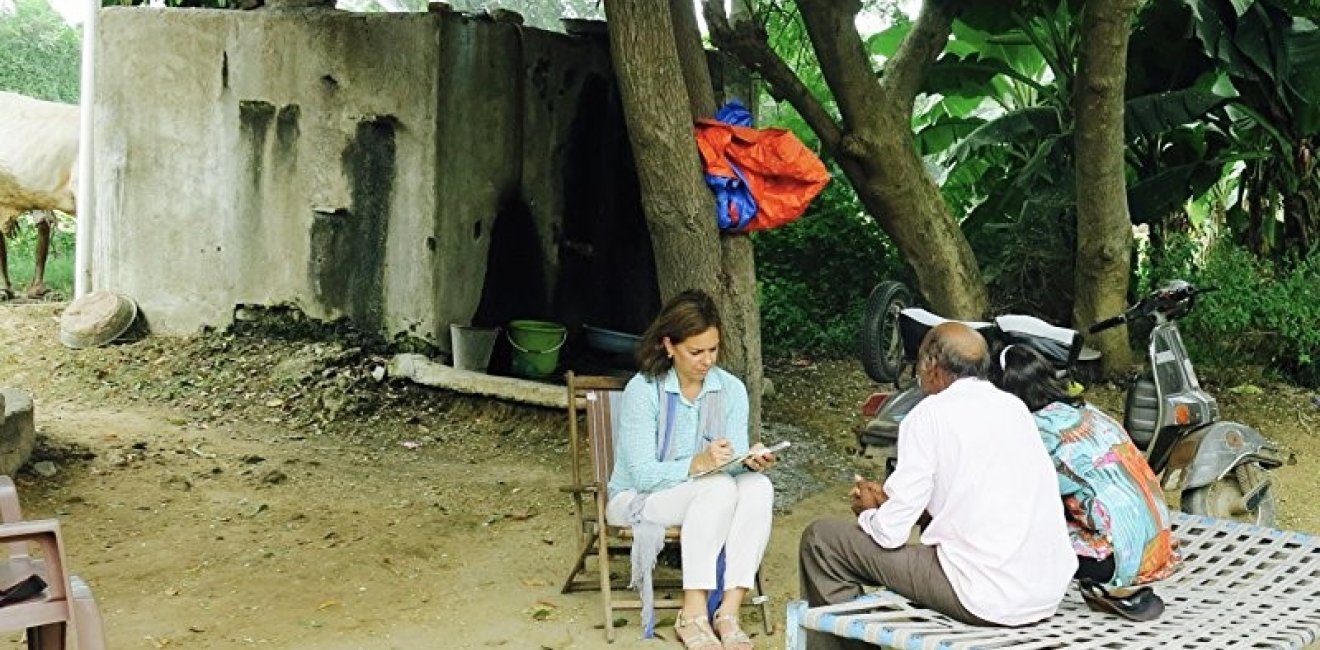
Journalist and author Lisa Palmer was a Public Policy Scholar with the Wilson Center’s Environmental Change and Security Program and the Global Sustainability and Resilience Program from July 2014 to May 2015. She says her time at the Center was the most influential year of her career. Palmer has written for publications such as Slate Magazine, The Guardian, Yale E360, Ensia, Scientific American, The New York Times, and the Nature journals among others. Her work has primarily focused on topics relating to the environment, climate change, business sustainability, population growth, and increases in global food demand. She is currently a senior fellow at the National Socio-Environmental Synthesis Center (SESYNC). Palmer’s book, “Hot, Hungry Planet: The Fight to Stop a Global Food Crisis in the Face of Climate Change,” was released in May 2017. Palmer is a professional member of the Society of Environmental Journalists, the D.C. Science Writers Association, and the National Association of Science Writers.
Q&A
Q: What issues or topics are you working on currently?
A: I certainly don’t go around looking for solutions-oriented stories, but there’s something about having a solution to the problem that attracts me, so that’s what I’m working on. I’m interested in environmental stories that can say something larger about the human experience—how we make decisions or tough choices, shift our behavior, adjust to our changing environment, and what our environment can do for us. My writing has recently focused on how increasing global population, growing food demand, and a changing climate necessitate new kinds of thinking in agriculture, but also fields like public health and energy. I write about this integration of ideas in my new book, Hot, Hungry Planet: The Fight to Stop a Global Food Crisis in the Face of Climate Change. I also recently published an essay, One Meal A Day, in The New Republic on the famine in northern Cameroon —a truly silent crisis. I’m currently a Senior Fellow for Socio-Environmental Understanding at the National Socio-Environmental Synthesis Center (SESYNC) in Maryland, where I write and publish on topics at the intersection of human and natural systems. I’m also working on stories in a few new areas, including how the environment is critical for quickly implementing Colombia’s peace deal, and a global analysis of urban agriculture.
Q: Have you found your association with the Wilson Center to be beneficial to your work?
A: At the Wilson Center I was affiliated with the Environmental Change and Security Program and the Global Sustainability and Resilience Program, led by Roger-Mark De Souza. Roger-Mark and his team put a great deal of effort toward introducing me to experts that reached beyond my environmental science beat—things like resilience, global large scale land acquisitions, and water policy. I had one on one meetings with leaders from the State Department, D.C.-area university programs, and NGOs. Through this expanded network, I came away with a much broader understanding of the people, policies, and systems that interacted with the environment, sustainability, food security, and national security. I continue to build this network even today. The depth of knowledge those contacts, meetings, and Wilson Center events provided in one year led to it being the most influential year of my career.
Q: What are your best memories of your time in residence at the center?
A: I ate lunch with my fellow fellows at the Wilson Center Café almost every day. Everyone put a great deal of emphasis on writing, and so even though we were working on far-ranging subjects we all could talk about the challenges of writing and the progress we were making on our books or policy briefs. Mostly this boiled down to discussing how writing is simply about making a series of decisions of what to leave in and what to take out. I have a general thought about how my colleagues at the Center influenced me, which is to say that everything contributes in some way. Because I spent a great deal of time soaking up ideas, there was a whole spectrum of topics that were not associated with my work but were utterly fascinating and which I am incredibly fortunate to have witnessed, such as when three Central American foreign ministers came to the Center to talk about the rise of unaccompanied minors to the United States. I also fondly remember all the generosity of the Wilson Library staff, and I regard the lending privileges from the Library of Congress as indispensable.
Q: Would you recommend a term as a Wilson Center fellow to a colleague?
A: A Wilson Center fellowship stuns. I am pleased to have had the privilege of time at the Center with the support of some of the brightest in Washington. Scholars in my cohort were working on big problems and pursued their big ideas with courage, insight, and humor, and it meant a great deal to be a part of that because I learned so much from their breadth of experience. Any colleague of mine would be fortunate to be on the receiving end of a Wilson fellowship.
Q: There are lots of conversations about “impact” in the think tank world. What’s the best example you can provide that highlights the impact of your work?
A: The best example of impact developed over time when I met a foreign service official at the State Department. Through my articles, briefings, and roundtables, I facilitated meetings that integrated ideas and reporting on resilience, and this person began to understand how environmental sustainability, economic development, and food security need not be antagonistic goals. Anecdotally, the foreign service officer indicated that my help in improving his understanding of climate change and the environment led to developing policies that more clearly integrated food security and environmental security in Latin America and the Caribbean.
Q: Do you have any upcoming projects or other future plans you can tell us about? (books, lectures, appointments, etc.)
A: With the recent publication of Hot, Hungry Planet, I have several lectures planned at universities in the mid-Atlantic and the Northeast this fall, and at the World Affairs Council of New Hampshire in late October. My work is also featured in a video that will appear this fall. Visit www.hothungryplanet.com to stay posted on my latest events.
I’m also about to embark on a new reporting project with support from the Pulitzer Center for Crisis Reporting. I’m still setting up the details of my travel and reporting, and I will certainly share more news when I complete the work.
Author
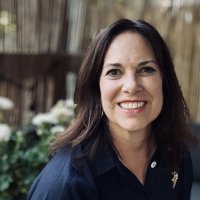
Journalist and Research Professor, George Washington University; Author of Hot, Hungry Planet
Explore More in Scholar & Alumni Spotlight
Browse Scholar & Alumni Spotlight
Dr. Guadalupe Correa-Cabrera: Crossing Borders in Research and Policy
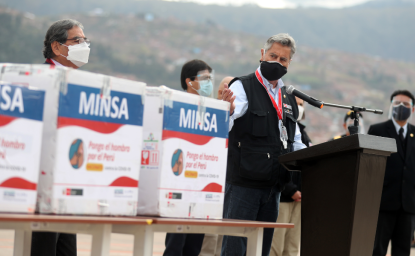
Former Peruvian President Francisco Sagasti: Academic Turned Politician
